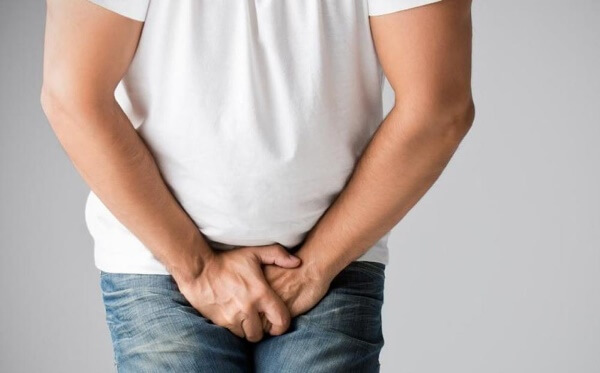Reader's letter:
"Hello. I am 45 years old and I have had the same problem for several weeks now - I cannot go to the toilet in a small way. I push, but nothing comes out. Usually the stream is either sluggish or the urine comes in drops. Haven't gone at all in the last three days. What should I do?"
In urology, such a problem as ischuria or acute urinary retention is known. Often she appears without a logical explanation, which leads the man to bewilderment. There are many causes of difficulty urinating, the most common being benign prostatic hyperplasia (BPH). Let's talk about it and consider other pathologists that can prevent a man from writing.
Why there is a problem
Urination is a rather complex process that involves the nervous and urinary systems, as well as some muscle groups. When the bladder is full, an appropriate impulse is sent to the brain, after which the sphincter of the organ relaxes and urine is expelled through the urethra.
In the event of a violation at the level of the nervous system, the impulse to the brain will not be transmitted correctly, which will lead to a violation of the process of urine output. Other factors can also cause ischuria:
- prostate adenoma - due to compression of the lumen of the urethra by a tumor;
- brain injury;
- recent surgery on the spine;
- chronic prostatitis;
- neurogenic bladder.
In some men, urinary retention can occur after heavy drug or alcohol intoxication or as a result of severe stress. However, in cases such as the reader's, chronic inflammation in the prostate or BPH can be assumed with great certainty. Let's take a closer look at some of the reasons.
Prostate adenoma
The modern name of the disease is benign hyperplasia. This is a violation in the body, in which the growth of the glandular epithelium of the gland occurs. As a result, a tumor is formed, which increases in size and compresses the urethra in a man. Going to the toilet in a small way will not work.
Most often, this problem occurs over the age of 40, and doctors believe that about 80% of men will face it sooner or later. The reasons are not exactly known, it is assumed the influence of the level of androgens. It has been established that neither bad habits nor sexually transmitted diseases cause BPH.
Read also: How beer affects the body of a man: general information
Prostate adenoma has three stages, each of them is characterized by its own symptoms.
- The stream is sluggish, the urge is frequent, especially at night. It can last up to three years.
- There is a feeling of incomplete emptying of the bladder. Urine is excreted in small portions, then its outflow stops.
- Instead of a jet, urine is excreted in drops, it may have blood impurities.
Also, a man may be disturbed by malaise, dry mouth and other problems.
If the missing urination is caused precisely by prostate adenoma, surgery will be required. In other ways, this condition is not treated, and delay can cost lives.
neurogenic bladder
In medicine, this term refers to a non-functioning bladder. Most often, this pathology is caused by disorders in the central or peripheral nervous system. The causes of a neurogenic bladder can be:
- stroke;
- spinal cord injury;
- diabetic neuropathy;
- herniated disc;
- Parkinson's disease;
- amyotrophic sclerosis.
Also, the problem can be a complication after surgery on the organs located in the small pelvis.
A neurogenic bladder can lead to serious consequences. Due to the disturbed outflow of urine in the bladder, stones can form, and the load on the kidneys will also increase. In the absence of proper treatment, the kidneys can be affected, acute renal failure can develop, which is life-threatening.
At home, this problem is not treated. Competent catheterization is necessary, in some cases - surgical intervention.
Chronic prostatitis
The third reason that can lead to the fact that a man will not be able to cope with a small need. Inflammation in the prostate gland can be caused by various reasons, most often we are talking about infection. Pathogenic microflora, once in the prostate gland, begins to actively multiply in it. As a result, there is a focus of the inflammatory process, due to which the prostate can increase in size and squeeze the urethra.

Chronic prostatitis almost always proceeds without symptoms, only in the stage of exacerbation in a man the following signs appear:
- pain in the perineum, often dull, aching in nature;
- difficulty urinating;
- lack of erection.
In some cases, it is possible to increase body temperature to subfebrile values (37-37.5 C). Depending on the severity of the course, there may be problems with the emotional background, lack of appetite, fatigue.
Chronic prostatitis can be treated at home, but only if the therapy tactics are developed by a competent doctor. Self-medication will not help, alternative methods of treatment will only eliminate some of the symptoms.
bladder cancer
If the tumor is localized in the region of the bladder neck, there may be a violation of the outflow of urine. At risk are men living in large cities, working in industry, consuming foods containing carcinogens.

